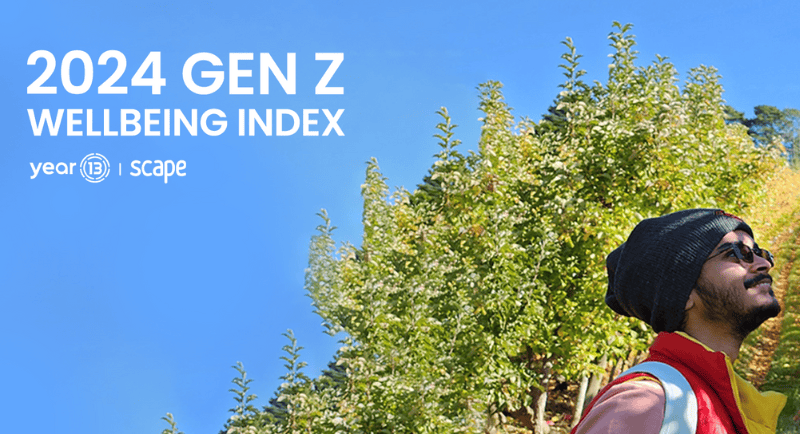More than half of Gen Zs are increasingly seeking out mental health therapy, according to a national youth well-being study conducted by Year13, in partnership with Scape.
Year13 says the new research reveals the top well-being problems and needs of Australian Gen Zs and will help media and brands to understand the key issues young people need help with.
It also revealed increasing rates of body dysmorphia (21%) and ADHD (27%) amongst Australian youth, and their disillusionment about the future in general, with 65% stating they had no purpose.
However, the report found 53% of young adults aged 18-24 years have had, or are having mental health therapy currently.
Undertaken in May 2024, the 2024 Gen Z Wellbeing Index, explores the mental health, exercise, sleep and diet patterns of more than 2,000 young Australians and 1,000 Scape residents aged between 18 to 24 – representing the youth demographic who have finished school and tracking progress made since its launch in 2023.
The 2024 study revealed that more than two-thirds of young Australians say they don’t get enough sleep (69%), more than half say they suffer from anxiety (56%), two in five say they are struggling to make friends (40%), a third are feeling lonely (35%), and overall, almost half cite their mental health as only fair or poor (43%).
The top negative influences on youth well-being in 2024 have also been found with more than half of young Australians saying figuring out their future (56%), fatigue/energy levels (56%), the rising cost of living (53%) and burnout (51%) are negatively impacting their wellbeing.
Two-fifths of young Australians also revealed they are suffering from low self-esteem (43%), poor body image (41%), and social anxiety (40%), while more than a third say they are suffering from depression (35%).
More than half of young people say violence against women (53%) is an issue of concern for them, making it the third biggest issue Gen Zs are worried about after cost of living (77%) and housing/rental affordability (63%), and above climate change (49%).
Year13 national partnerships director Annie Mulders said: “Understanding the most pressing challenges of young Australians underpins Year13’s capability to provide meaningful support to young people. What’s clear is we have a whole generation in need of wellbeing support and actionable wellbeing strategies to support positive outcomes.
“Our yearly measure of youth wellbeing provides insights to the lived experiences and real-life challenges young people are facing and enables us to surface priority areas of concern which help inform our strategies and collaborations with wellbeing partners such as Scape.
“Some of the key focus areas for us are supporting young people with confidence and self-esteem, relationships and of course working out their future, which remains the factor young people nominate as the greatest negative impact on their wellbeing. This is the second year Scape have supported this important research and it’s brilliant to see them taking the findings to optimise support and services for their residents.”
The full 2024 Gen Z Wellbeing Index can be found here.
